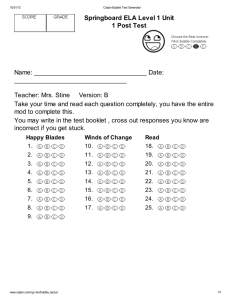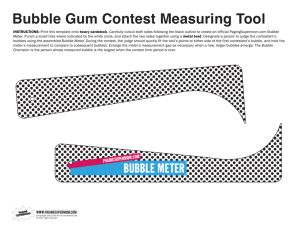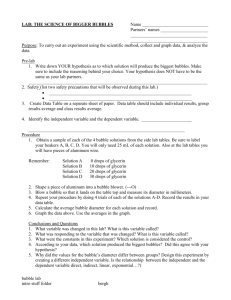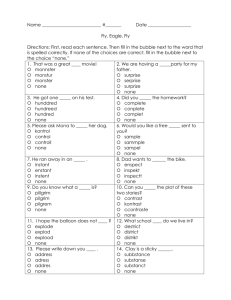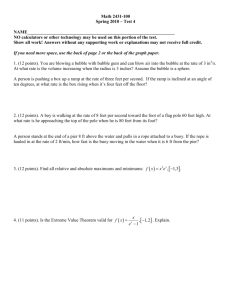Bubbles Lab
advertisement
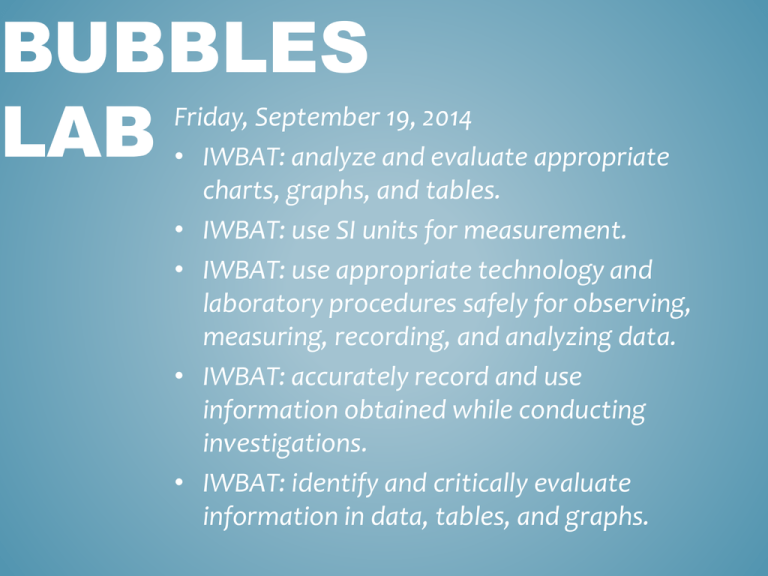
BUBBLES LAB Friday, September 19, 2014 • IWBAT: analyze and evaluate appropriate charts, graphs, and tables. • IWBAT: use SI units for measurement. • IWBAT: use appropriate technology and laboratory procedures safely for observing, measuring, recording, and analyzing data. • IWBAT: accurately record and use information obtained while conducting investigations. • IWBAT: identify and critically evaluate information in data, tables, and graphs. BEFORE YOU BEGIN…. • Question: Does the brand of dishwashing soap make a difference in the size of the bubbles? • Label “Bubble Lab” in your lab section of your notebook. • Develop your hypothesis. Remember your if…then…because statement. PREPARATION FOR LAB In your group of 4 decide on two people to gather supplies From the supply station, gather 3 graduated cylinders Decide who will gather the safety goggles and rulers Create a table label it brand A, B, and C. Include 5 trials and an average column. Title it Diameter of Bubbles in cm Trial 1 2 3 4 5 Average Brand A Brand B Brand C PROCEDURES Remember: IF YOU ARE NOT FOLLOWING DIRECTIONS YOU WILL BE REMOVED! Put on safety goggles and prepare table surface by wetting it with the bubble solution. Dip straw into bubble solution and blow a bubble onto the wet surface. Practice blowing bubbles until you can blow a large bubble without it popping. PROCEDURES….. • Blow a bubble until it pops. The popped bubble will leave a ring on the table • Measure the diameter of the bubble in cm and record your data table • Repeat 5 times • Repeat steps with each brand of soap • Average your data CAN YOU ANSWER THESE QUESTIONS? • Remember to write the question and answer in complete sentences!! • What is the independent variable in this investigation? • What is the dependent variable in this investigation? • What are the controls in this investigation? • Identify any variables in this investigation. • In your journal, create a BAR GRAPH to show your data. Use your average diameter of the bubble for each brand. Make sure your graph has: Title and a label for each axis. • Why is a bar graph the best choice for this data? • What does the data tell you about the three different kinds of dishwashing soap and bubbles? REFLECTION: • Describe what you have learned about soap bubble solutions. Answer the original question, explain why your hypothesis was supported or not supported by the data, and use actual data (specific numbers) to provide evidence for what you say.
